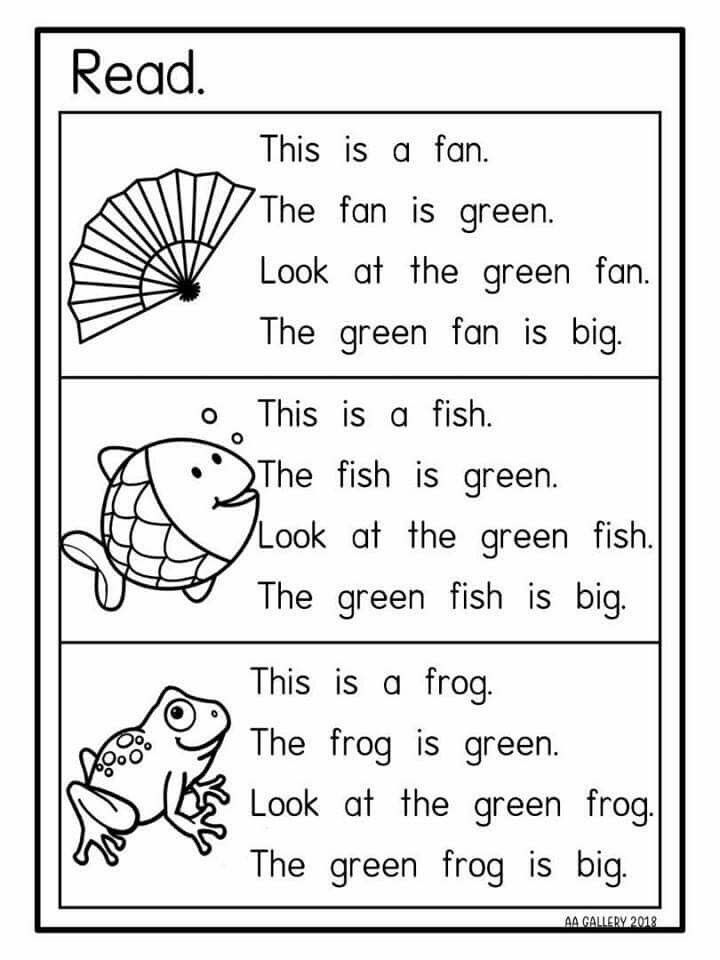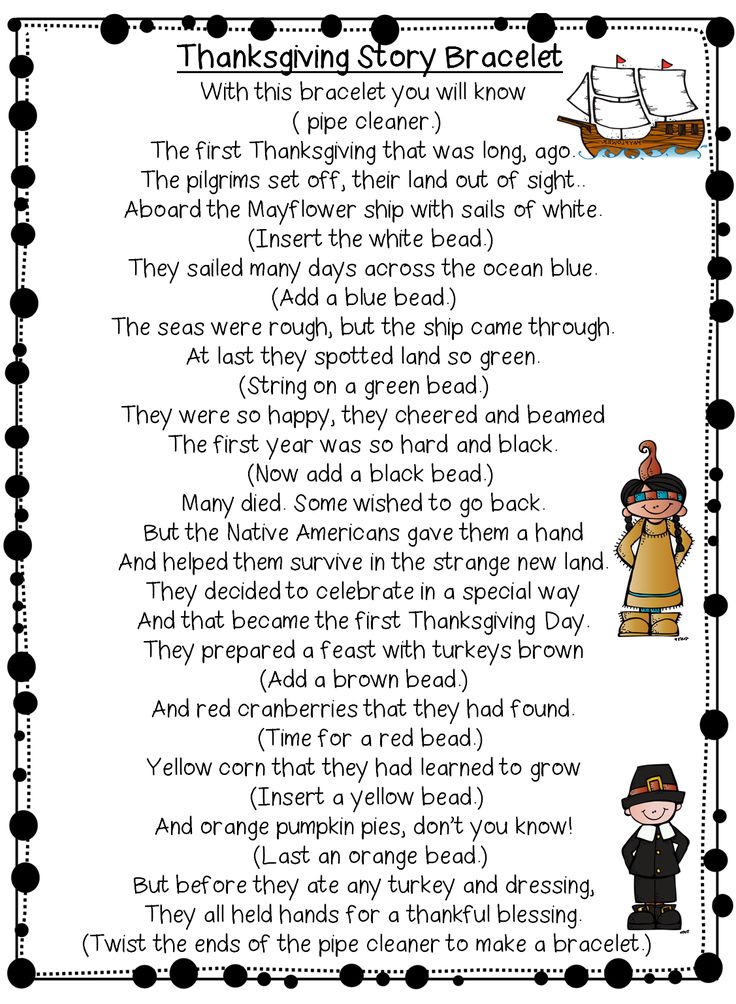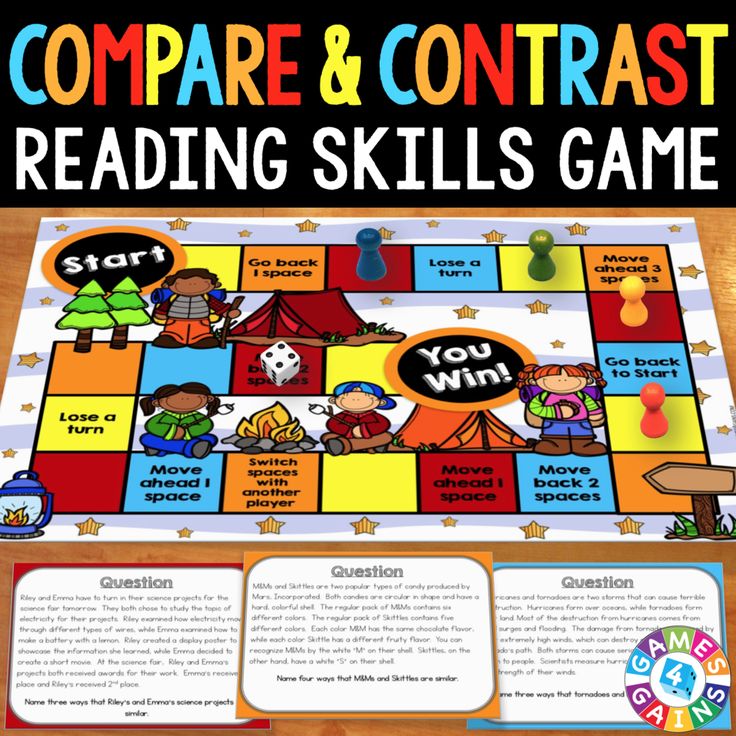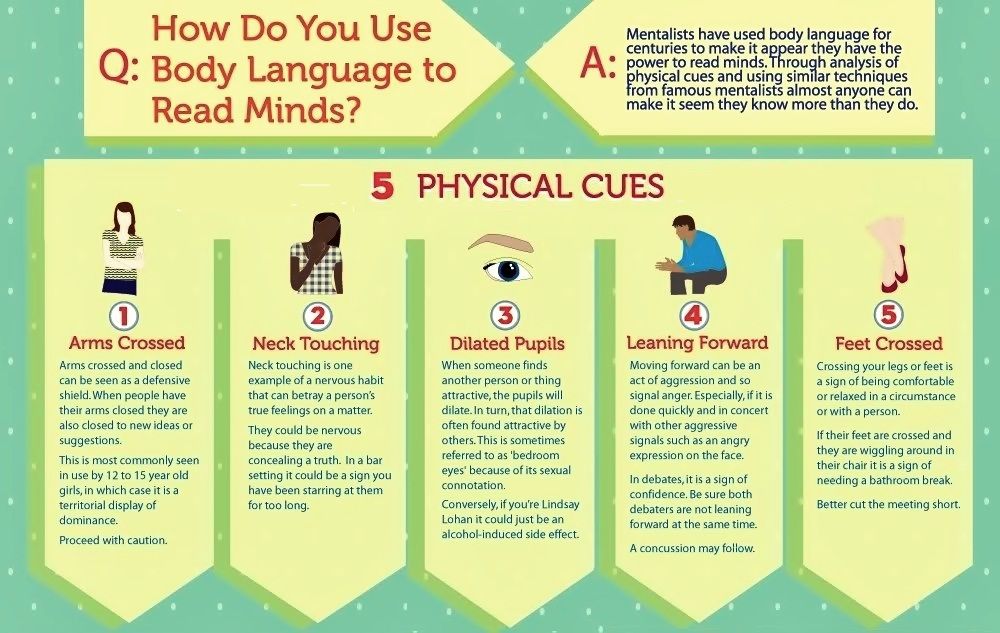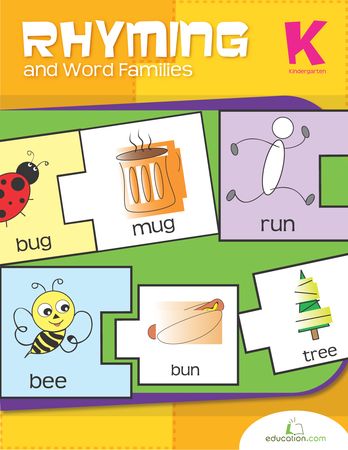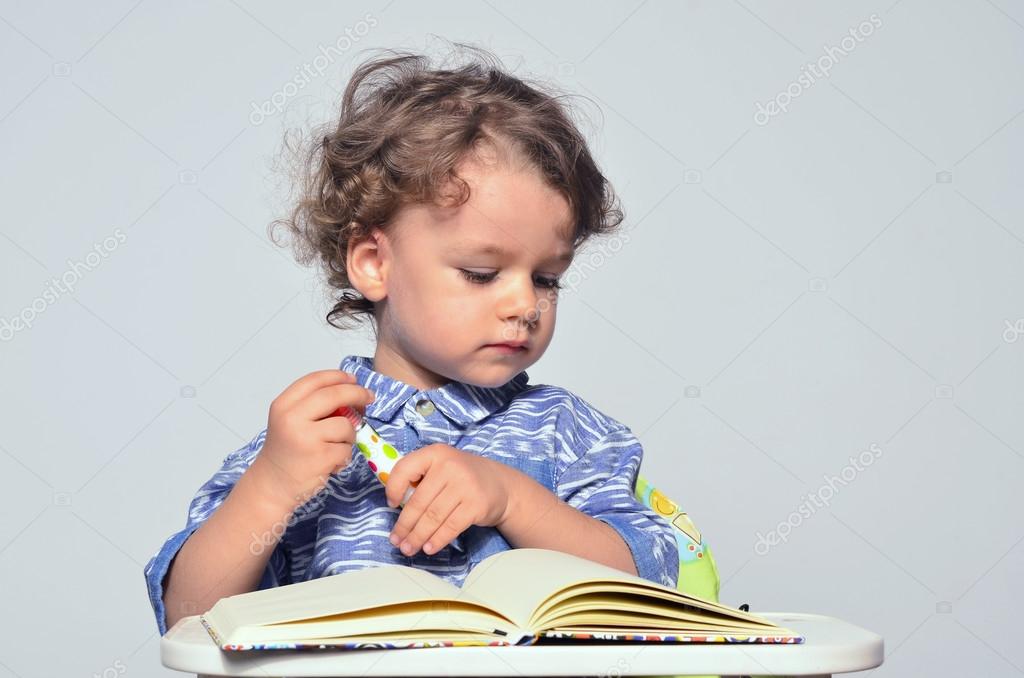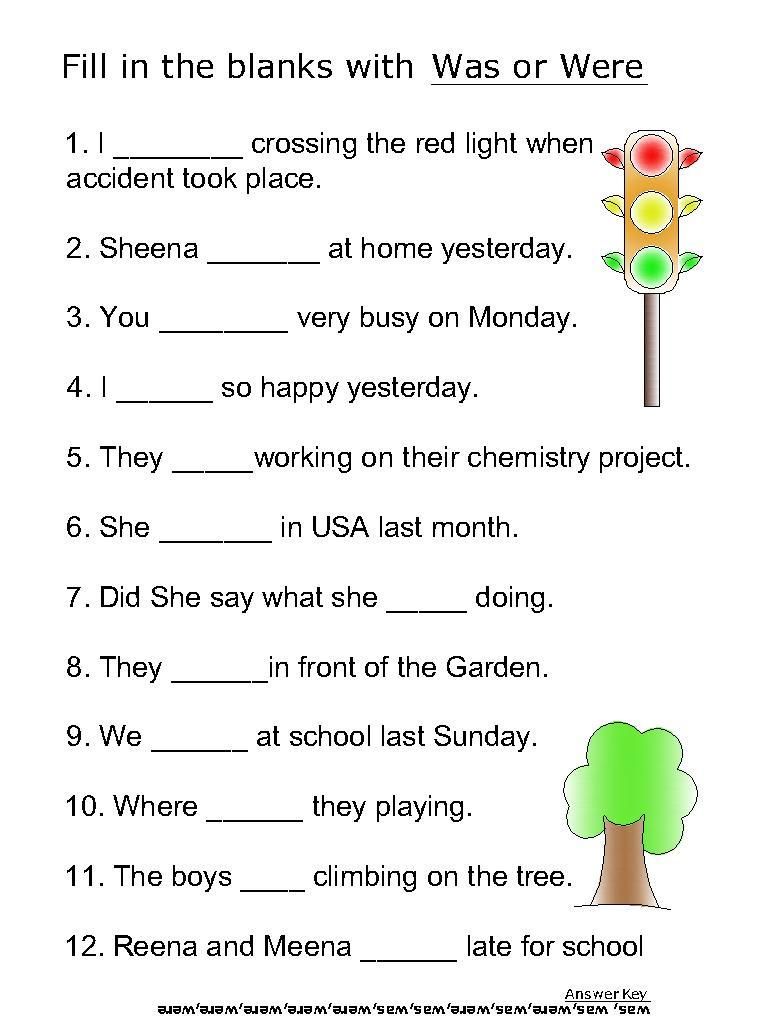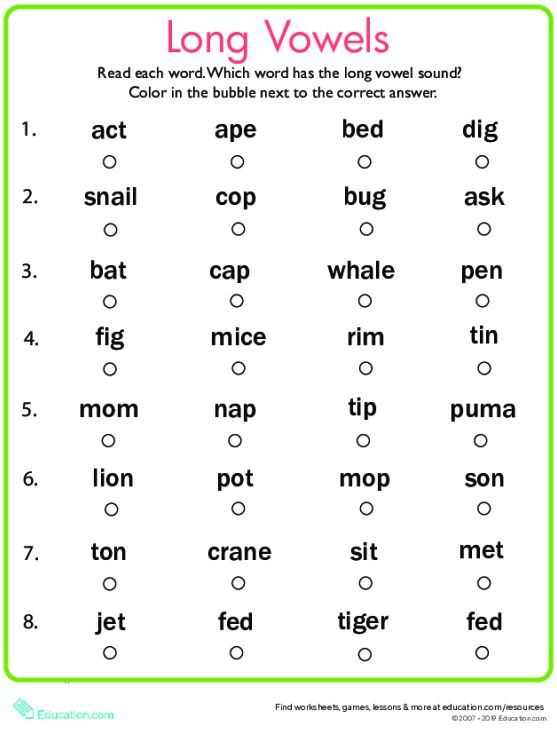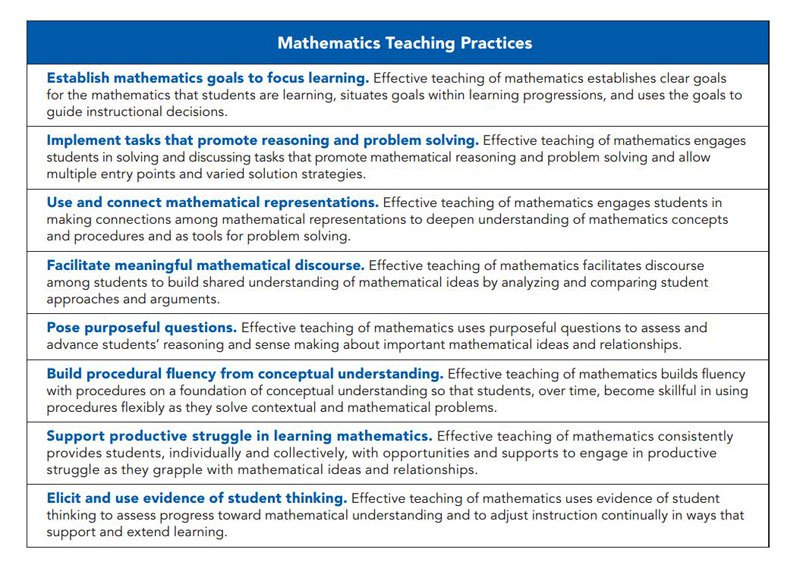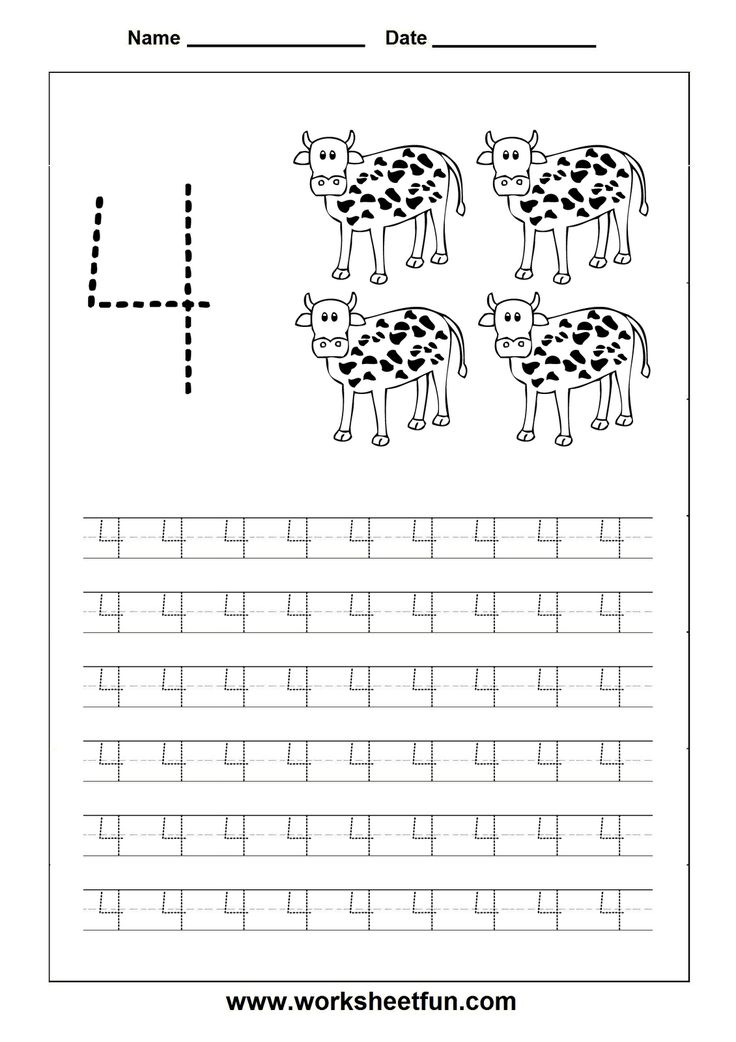Rhyming word list for preschoolers
Rhyming Words for Kids (Complete List)
Many of us have fond memories of learning nursery rhymes and rhyming stories when we were children.
These tales are important because they expose children to rhyme, which is essential for language development. Children who have strong early language abilities, including listening and speaking, are shown to develop more robust reading and writing skills.
Helping your child recognize and use rhyme will help them first with their verbal language and then with their literacy. Introducing rhyming words for kids is an excellent way to do that.
Table of Contents
- How Do You Teach Rhyming Words To Children?
- Rhyming Words For Kindergarten
- Rhyming Words For First Grade And Older
- Any Time Can Be Rhyme Time
How Do You Teach Rhyming Words To Children?
Children learn about rhyme in three stages, although there is much overlap as they move from one step to another.
Rhyme Exposure
This is when your child hears rhyming words. This can be in songs while reading rhyming together, or elsewhere. At this stage, you should point out rhyming words to your child.
Rhyme Recognition
Once your child hears a rhyme and points it out, they have reached the stage of rhyme recognition.
Rhyme Production
Finally, your child will be able to produce rhyme themselves. They may take great pride in asking you questions, such as, “Do you know what rhymes with door? More!”
While this may seem like a small thing to you, to them it’s big. Make sure to show them that you’re impressed with their newly-found knowledge.
Ways To Teach Rhyming Words
Make learning to rhyme fun by using some of these methods.
Share Rhyme In Books, Poems, And Songs
Reading rhyming books and poems and singing together will expose your child to rhymes in a fun, relaxing way. Read the complete story or sing the entire song first and then go back and point out the rhymes.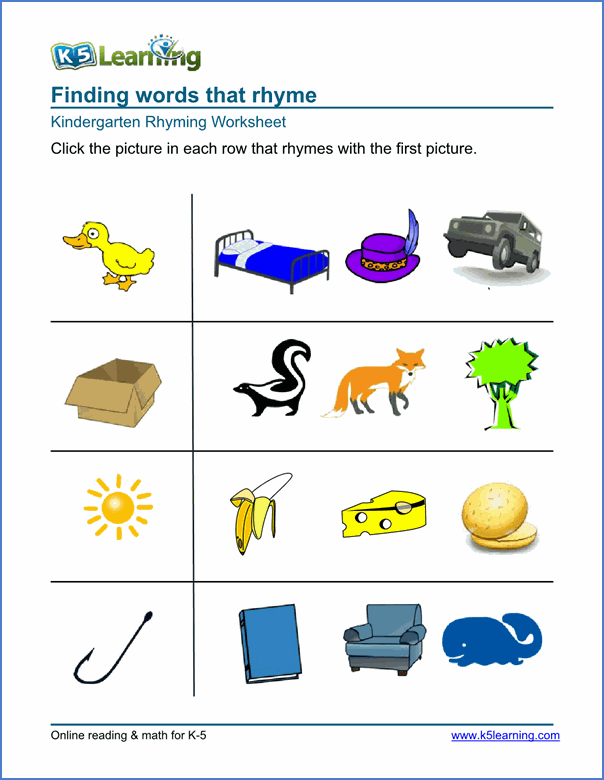
Then, when your child is aware of the concept of rhyming, ask them to point out the pairs of rhyming words they hear or read.
Once your child is familiar with rhymes, read or sing, but don’t say the second rhyming word. Instead, ask your child to provide a suitable rhyme.
Puzzles
Rhyme word puzzles are a fun way for your child to practice pairing up rhyming words.
Clip Cards
Not all rhyming words have the same spelling at the end. To prevent your child from becoming confused by the spelling, use peg cards where your child picks the correct rhyme according to the picture.
Lap Books
Create nursery rhyme lap-books with your child. First, print out the standard nursery rhyme and then have your child replace the original word with another of their own that rhymes.
Rhyming Dictionaries
Help your child find suitable rhyming words with a rhyming dictionary.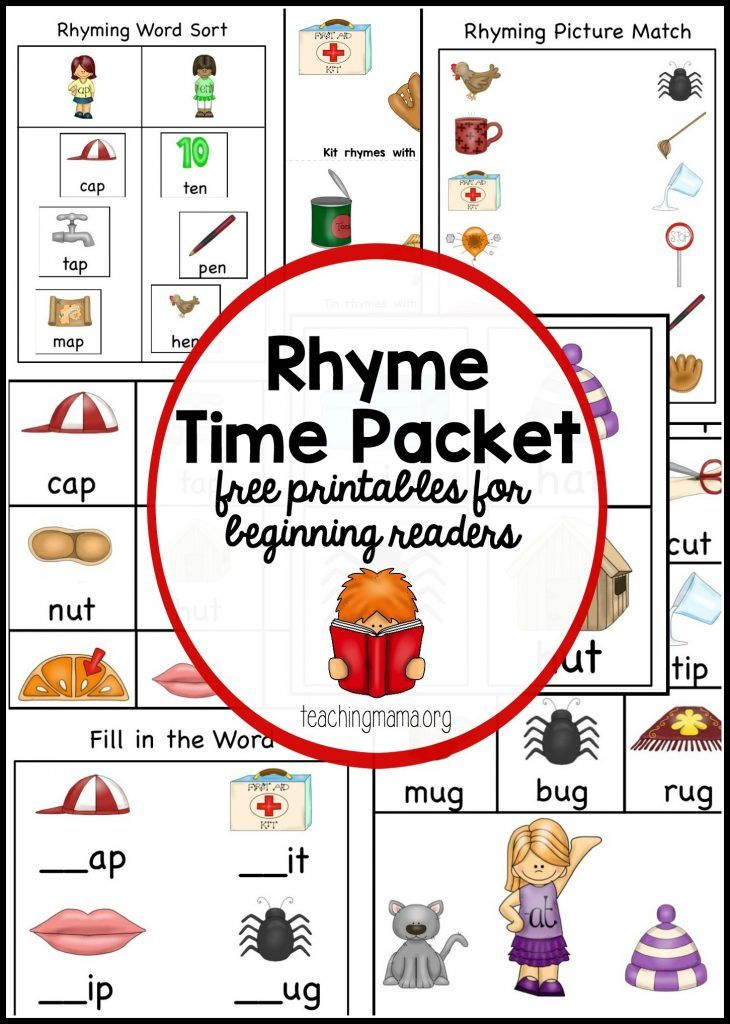 These can be immensely helpful no matter what age you are, especially if you are a teacher, writer, or write lyrics for songs.
These can be immensely helpful no matter what age you are, especially if you are a teacher, writer, or write lyrics for songs.
Rhyming Words For Kindergarten
These are great options for those who are younger than kindergarten or those who are still working on completing that first year in school. These are simple words that won’t be too challenging for this age.
Words That Rhyme With At
- Bat
- Cat
- Fat
- Hat
- Mat
- Pat
- Rat
- Sat
- Vat
- Slat
- Brat
- Flat
- Chat
- Splat
- That
Words That Rhyme With An
- Ban
- Can
- Fan
- Man
- Pan
- Ran
- Tan
- Van
- Flan
- Plan
- Span
- Scan
Words That Rhyme With Ab
- Cab
- Dab
- Drab
- Fab
- Flab
- Grab
- Jab
- Nab
- Lab
- Slab
- Tab
- Crab
Words That Rhyme With Ad
- Add
- Bad
- Clad
- Dad
- Fad
- Had
- Lad
- Mad
- Pad
- Rad
- Sad
Words That Rhyme With All
- Ball
- Call
- Fall
- Hall
- Mall
- Shawl
- Tall
- Wall
- Thrall
- Gall
Words That Rhyme With Ag
- Bag
- Flag
- Drag
- Gag
- Hag
- Nag
- Rag
- Sag
- Tag
- Wag
Words That Rhyme With Ip
- Ship
- Chip
- Clip
- Dip
- Drip
- Flip
- Grip
- Hip
- Kip
- Lip
- Nip
- Pip
- Rip
- Sip
- Slip
- Skip
- Snip
- Tip
- Trip
- Zip
Words That Rhyme With Ap
- App
- Cap
- Clap
- Flap
- Gap
- Lap
- Map
- Nap
- Rap
- Scrap
- Slap
- Snap
- Strap
- Snap
- Tap
- Trap
Words That Rhyme With Id
- Bid
- Did
- Hid
- Kid
- Lid
- Mid
- Rid
- Sid
- Grid
- Slid
- Skid
- Squid
Words That Rhyme With Op
- Bop
- Cop
- Crop
- Clop
- Drop
- Flop
- Hop
- Mop
- Plop
- Prop
- Shop
- Stop
- Swap
- Top
Words That Rhyme With Am
- Clam
- Cram
- Dam
- Gram
- Ham
- Jam
- Lamb
- Ram
- Slam
- Spam
- Tram
Words That Rhyme With Ig
- Big
- Dig
- Fig
- Gig
- Pig
- Rig
- Twig
- Swig
- Wig
- Brig
Words That Rhyme With Ar
- Are
- Bar
- Car
- Far
- Jar
- Scar
- Star
- Tar
- Ajar
- Guitar
Words That Rhyme With Aw
- Awe
- Caw
- Claw
- Draw
- Flaw
- Paw
- Raw
- Saw
- Straw
- Thaw
Words That Rhyme With Ay
- Bay
- Clay
- Day
- Gray
- Hay
- Jay
- Lay
- May
- Pay
- Play
- Pray
- Say
- Stay
- Spray
- Sway
- They
- Way
- Tray
Words That Rhyme With Ell
- Bell
- Cell
- Dell
- Fell
- Gel
- Sell
- Shell
- Smell
- Spell
- Tell
- Well
- Yell
Words That Rhyme With En
- Den
- Men
- Pen
- Ten
- Then
- When
- Wren
- Zen
- Ben
- Ken
Words That Rhyme With Et
- Bet
- Get
- Jet
- Let
- Met
- Net
- Pet
- Set
- Wet
- Yet
Words That Rhyme With Ew
- Blue
- Blew
- Brew
- Chew
- Clue
- Crew
- Cue
- Do
- Dew
- Drew
- Ewe
- Flew
- Glue
- Grew
- Knew
- New
- Phew
- Shoe
- Shoo
- Stew
- Through
- Threw
- True
- Two
- View
- You
- Who
- Zoo
Words That Rhyme With In
- Bin
- Chin
- Din
- Fin
- Grin
- Inn
- Pin
- Shin
- Skin
- Spin
- Twin
- Thin
- Tin
- Win
Words That Rhyme With It
- Bit
- Fit
- Hit
- Kit
- Knit
- Lit
- Mit
- Nit
- Pit
- Sit
- Quit
- Skit
- Slit
- Spit
Words That Rhyme With Od
- Cod
- Bod
- Odd
- Nod
- Plod
- Prod
- Rod
- Squad
- Trod
- Pod
Words That Rhyme With Og
- Bog
- Blog
- Cog
- Clog
- Dog
- Fog
- Frog
- Hog
- Jog
- Log
Words That Rhyme With Op
- Top
- Chop
- Cop
- Crop
- Drop
- Flop
- Hop
- Mop
- Pop
- Shop
- Stop
Words That Rhyme With Ot
- Blot
- Cot
- Clot
- Dot
- Got
- Hot
- Knot
- Not
- Plot
- Pot
- Rot
- Shot
- Spot
Words That Rhyme With Ow
- Bow
- Brow
- Cow
- How
- Now
- Pow
- Sow
- Row
- Vow
- Wow
Rhyming Words For First Grade And Older
These are useful rhyming words for first graders and above with an expanding skillset.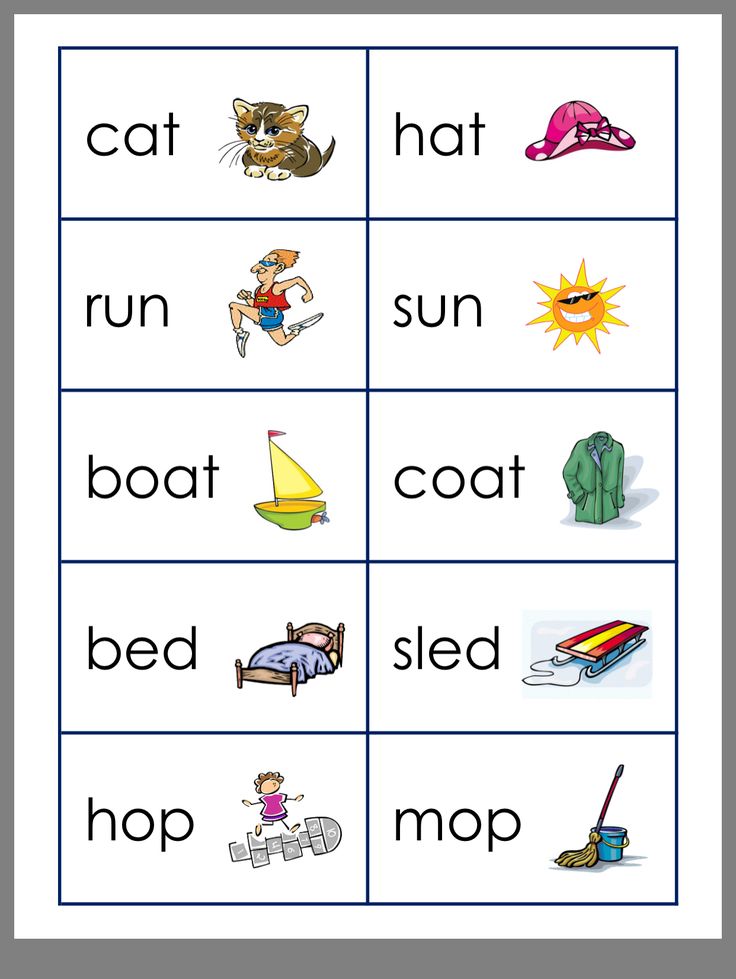
Words That Rhyme With Ake
- Ache
- Bake
- Cake
- Brake
- Break
- Fake
- Flake
- Lake
- Make
- Quake
- Rake
- Sake
- Take
- Sneak
- Steak
- Stake
- Wake
Words That Rhyme With Ale
- Bail
- Bale
- Kale
- Dale
- Fail
- Hail
- Male
- Nail
- Pail
- Pale
- Rail
- Sail
- Snail
- Sale
- Stale
- Tail
- Tale
- Trail
- Whale
- Detail
- Toenail
Words That Rhyme With Ain
- Brain
- Cane
- Chain
- Crane
- Drain
- Gain
- Grain
- Lane
- Mane
- Main
- Pane
- Pain
- Plain
- Plane
- Reign
- Rain
- Sprain
- Stain
- Strain
- Train
- Again
Words That Rhyme With Or
- Door
- Chore
- Core
- Four
- For
- Sore
- Floor
- Door
- More
- Oar
- Snore
- Soar
- Store
- Score
Words That Rhyme With School
- Cool
- Cruel
- Drool
- Fool
- Fuel
- Ghoul
- Jewel
- Mule
- Pool
- Spool
- Tool
- Who’ll
- You’ll
- Yule
Any Time Can Be Rhyme Time
Whether you are playing rhyme I-spy, singing nursery rhymes, or reading a book of children’s poems, the time you spend sharing rhymes with your child is helping them develop spoken language.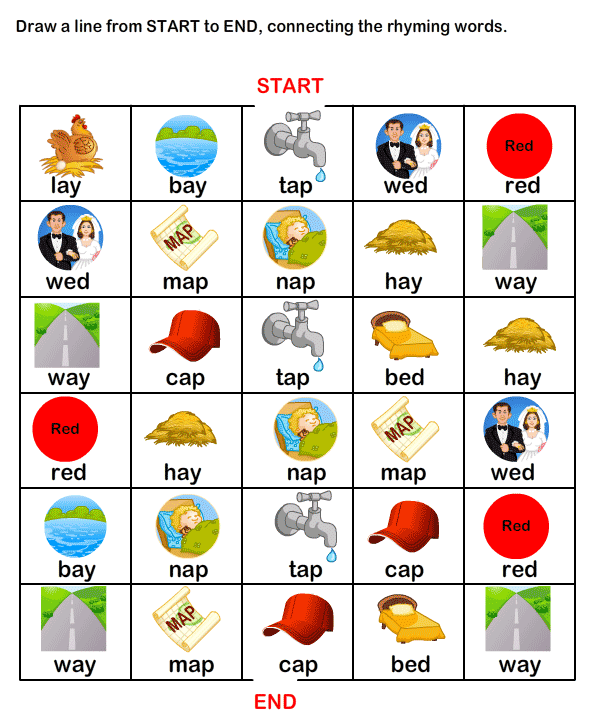
Build a little rhyme time into every day and give your child an advantage.
Introducing rhyming words is an excellent way to lay a solid foundation for literacy.
Feedback: Was This Article Helpful?
Thank You For Your Feedback!
Thank You For Your Feedback!
What Did You Like?
What Went Wrong?
List of Rhyming Words for Kids: Early Language Development
We all have memories of our childhood learning nursery rhymes and rhyming stories. Some people still remember the whole rhyming poem with the tone of it, this teaches us that rhyming words for kids are essential objects to develop early language abilities such as listening and speaking. Children with strong language abilities are shown to develop rigorous reading and writing skills.
Helping your child with recognition and identification of rhyming words helps them dually with verbal language polishing and the variety of vocabulary of the language. Introducing rhyming words to your younger ones also helps them with literacy in that language.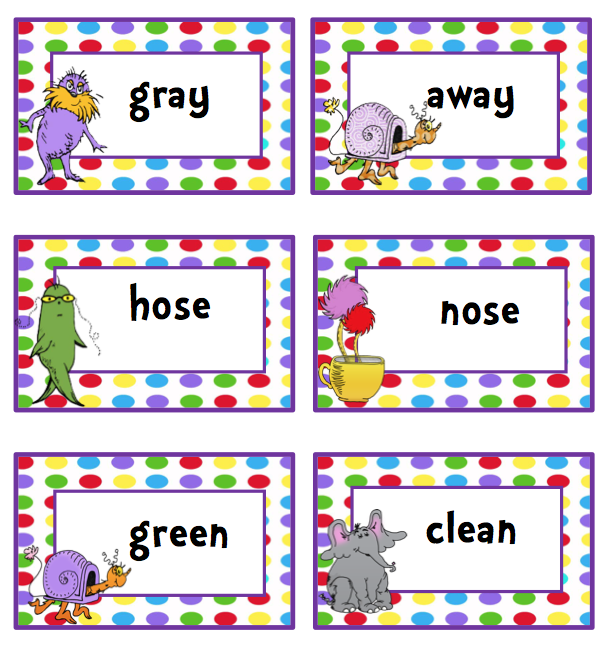 Children learn to rhyme in three stages, they are not distinct from each other as they overlap with each other.
Children learn to rhyme in three stages, they are not distinct from each other as they overlap with each other.
Learning courses for your kids! Get free trial here
Also read: Simple English Words for Daily Use for Kids: List Of Words for Kids to Use Daily
- Exposure – Introducing them with rhyming words can be as simple as singing a nursery song, hearing the particular pattern in the song can aid the learning of the song by the kid. Exposing them to a variety of rhyming songs while reading and singing them together.
- Recognition – After singing and hearing the song child should be able to recognize the pattern of the rhyme also called rhyme recognition.
- Production – After exposure and recognition of rhymes your child will be able to produce rhyme themselves. Asking questions to rhyme simple daily used words such as jug, door, the cup will make them curious to explore more.
Also read: Opposite Words in English for Kids: Ways to Help them Improve their Vocabulary
How to Teach –
Many methods and materials are available to start the learning with rhyme for kids.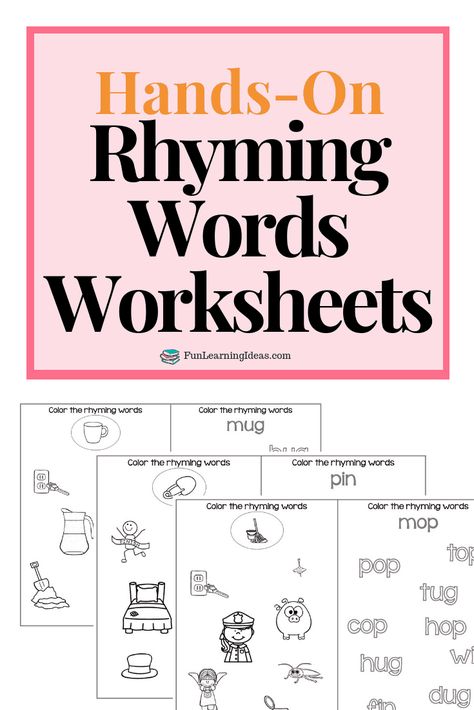 Using multiple ways to teach them the concept of rhyming and introducing them with new words works better and kids also enjoy it.
Using multiple ways to teach them the concept of rhyming and introducing them with new words works better and kids also enjoy it.
Following are the common ways that can be used as an introduction with rhyming words for your kid list.
- Reading rhyme books, poems, and songs.
- Puzzles containing rhyming words.
- Clipping cards
- Lap books
- Rhyming dictionaries
Also read: Jolly Phonics Tricky Words for Kids: How to Teach Them to Kids?
List of Rhyming Words for Kids –
The following list of rhyming words is useful for nursery level and first-grade kids, as your child makes gradual improvement you can switch into more complex rhymes.
A) Rhyming words with “at”
- Bat
- Cat
- Fat
- Hat
- Mat
- Pat
- Rat
- Sat
- Vat
- Slat
- Brat
- Flat
- Chat
- Splat
- That
B) Rhyming words with “an”
- Ban
- Can
- Fan
- Man
- Pan
- Ran
- Tan
- Van
- Flan
- Plan
- Span
- Scan
C) Rhyming Words with “ab”
- Cab
- Dab
- Drab
- Fab
- Flab
- Grab
- Jab
- Nab
- Lab
- Slab
- Tab
- Crab
D) Rhyming Words with “ad”
- Add
- Bad
- Clad
- Dad
- Fad
- Had
- Lad
- Mad
- Pad
- Rad
- Sad
E) Rhyming Words with “all”
- Ball
- Call
- Fall
- Hall
- Mall
- Shawl
- Tall
- Wall
- Thrall
- Gall
F) Rhyming Words with “ag”
- Bag
- Flag
- Drag
- Gag
- Hag
- Nag
- Rag
- Sag
- Tag
- Wag
G) Rhyming Words with “ip”
- Ship
- Chip
- Clip
- Dip
- Drip
- Flip
- Grip
- Hip
- Kip
- Lip
- Nip
- Pip
- Rip
- Sip
- Slip
- Skip
- Snip
- Tip
- Trip
- Zip
H) Rhyming Words with “ap”
- App
- Cap
- Clap
- Flap
- Gap
- Lap
- Map
- Nap
- Rap
- Scrap
- Slap
- Snap
- Strap
- Snap
- Tap
- Trap
I) Rhyming Words with “id”
- Bid
- Did
- Hid
- Kid
- Lid
- Mid
- Rid
- Sid
- Grid
- Slid
- Skid
- Squid
J) Rhyming Words with “op”
- Bop
- Cop
- Crop
- Clop
- Drop
- Flop
- Hop
- Mop
- Plop
- Prop
- Shop
- Stop
- Swap
- Top
K) Rhyming Words with “am”
- Clam
- Cram
- Dam
- Gram
- Ham
- Jam
- Lamb
- Ram
- Slam
- Spam
- Tram
L) Rhyming Words with “ig”
- Big
- Dig
- Fig
- Gig
- Pig
- Rig
- Twig
- Swig
- Wig
- Brig
M) Rhyming Words with “ar”
- Are
- Bar
- Car
- Far
- Jar
- Scar
- Star
- Tar
- Ajar
- Guitar
N) Rhyming Words with “aw”
- Awe
- Caw
- Claw
- Draw
- Flaw
- Paw
- Raw
- Saw
- Straw
- Thaw
O) Rhyming Words with “ay”
- Bay
- Clay
- Day
- Gray
- Hay
- Jay
- Lay
- May
- Pay
- Play
- Pray
- Say
- Stay
- Spray
- Sway
- They
- Way
- Trap
Learning courses for your kids! Get free trial here
P) Rhyming words with “ell”
- Bell
- Cell
- Dell
- Fell
- Gel
- Sell
- Shell
- Smell
- SpellPTell
- Well
- Yell
Q) Rhyming words with “en”
- Den
- Men
- Pen
- Ten
- Then
- When
- Wren
- Zen
- Ben
- Ken
R) Rhyming words with “et”
- Bet
- Get
- Jet
- Let
- Met
- Net
- Pet
- Set
- Wet
- Yet
S) Rhyming words with “ew”
- Blue
- Blew
- Brew
- Chew
- Clue
- Crew
- Cue
- Dew
- Drew
- Ewe
- Flew
- Glue
- Grew
- Knew
- New
- Phew
- Shoe
- Shoo
- Stew
- Through
- Threw
- True
- Two
- View
- You
- Who
- Zoo
T) Rhyming Words with “in”
- Bin
- Chin
- Din
- Fin
- Grin
- Inn
- Pin
- Shin
- Skin
- Spin
- Twin
- Thin
- Tin
- Win
U) Rhyming Words with “it”
- Bit
- Fit
- Hit
- Kit
- Knit
- Lit
- Mit
- Nit
- Pit
- Sit
- Quit
- Skit
- Slit
- Spit
V) Rhyming Words with “od”
- Cod
- Bod
- Odd
- Nod
- Plod
- Prod
- Rod
- Squad
- Trod
- Pod
W) Rhyming words with “og”
- Bog
- Blog
- Cog
- Clog
- Dog
- Fog
- Frog
- Hog
- Jog
- Log
X) Rhyming words with “op”
- Top
- Chop
- Cop
- Crop
- Drop
- Flop
- Hop
- Mop
- Pop
- Shop
- Stop
Y) Rhyming words with “ot”
- Blot
- Cot
- Clot
- Dot
- Got
- Hot
- Knot
- Not
- Plot
- Pot
- Rot
- Shot
- Spot
Z) Rhyming words with “ow”
- Bow
- Brow
- Cow
- How
- Now
- Pow
- Sow
- Row
- Vow
- Wow
Conclusion
The rhyming words occupy the majority of our childhood, teaching kids nursery rhymes makes them more receptive and fun to learn.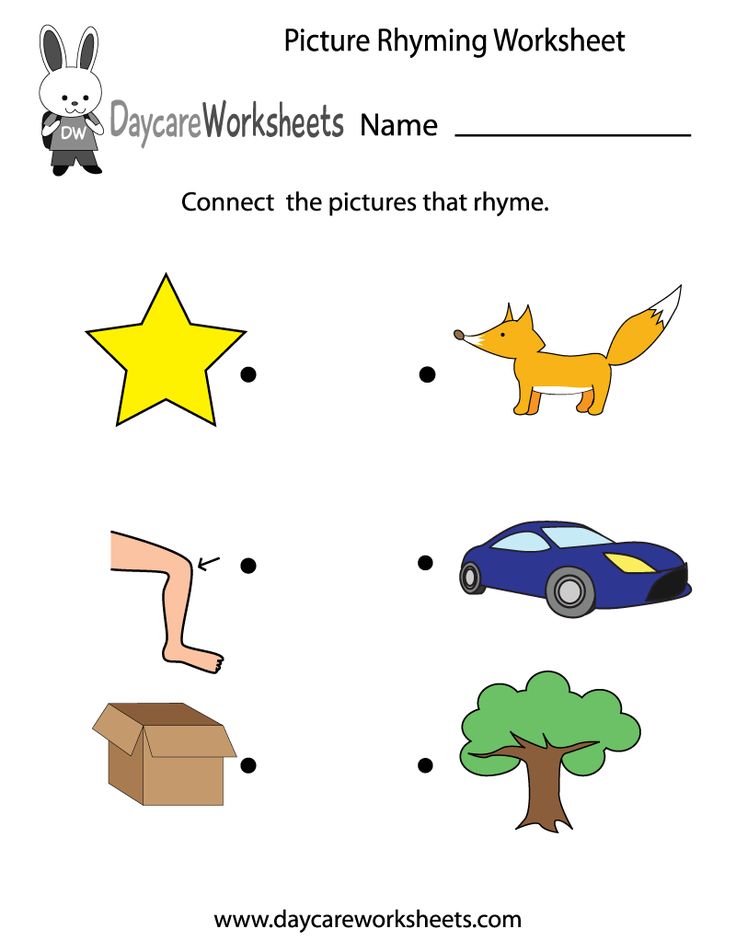 Learning rhymes is way more than just learning the words, it helps children with language development which is considered as one of the vital skills of communication, making them language smart. The successful implication of these rhyme words in front of the children can make them smart in spoken language.
Learning rhymes is way more than just learning the words, it helps children with language development which is considered as one of the vital skills of communication, making them language smart. The successful implication of these rhyme words in front of the children can make them smart in spoken language.
Building a rhyming skill little by little through nursery rhymes, reading rhyming stories, everyday object rhyming, and including other activities such as lap book, puzzles, word games. Teaching your kid rhyme words will solidify the foundation of their literacy, and give them an advantage of developed language skills. Hopefully, you found this article helpful. You can share your view with us by commenting in the below box.
Also read: Why do Kids Today have to Learn about Verbs, Adverbs, Pronouns etc? Why is Grammar Important?
Consultation for educators "The genre of poetry, its use for the development of the speech of preschoolers"
"Read poetry to children, let their ear get used to the harmony of the Russian word, the heart
will be filled with a sense of grace, let poetry affect them in the same way as music .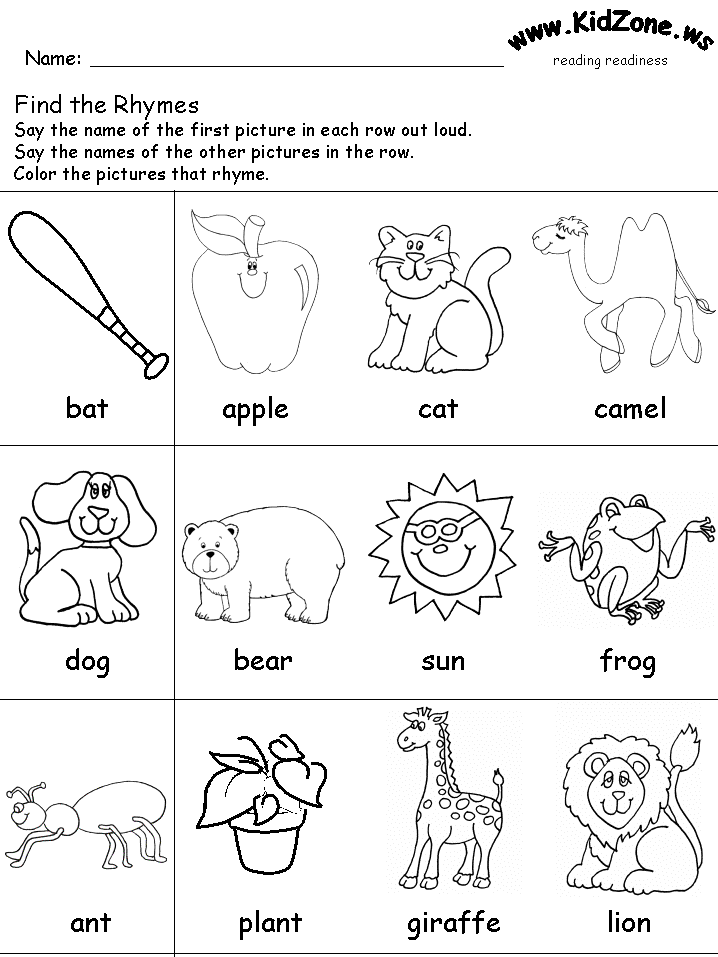 "
"
VG Belinsky
Topicality of the topic
Speech development is one of the most important tasks of preschool education. It consists in the formation of oral speech and the skills of verbal communication with others on the basis of mastering the literary language. Therefore, a large role at all age stages should be given to familiarization with fiction, including poetic genre.
Features of the poetic genre
Poetic speech rhythmically clearly organized . A child from a very early age is able to feel the rhythm of speech well.
Rhythm - uniform repetition of certain elements in time or space. Rhythm plays a huge role in the life of nature and man. Rhythmic change of seasons, day and night, human breathing, heartbeat, movements are rhythmic.
Rhythm in a poem is the uniform repetition of certain speech units in time.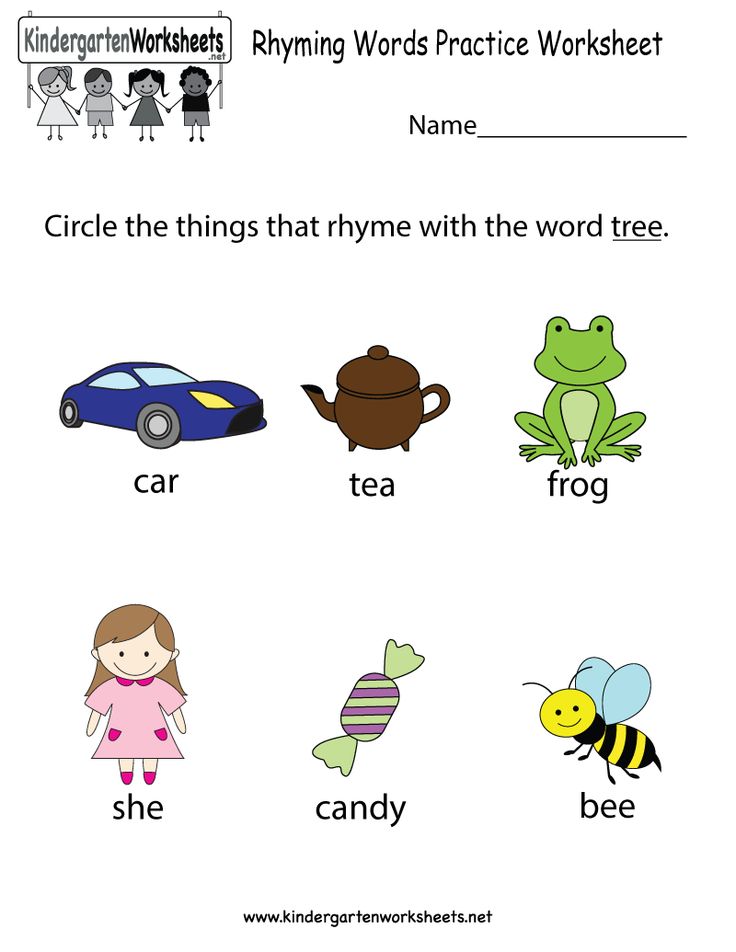 First of all, lines are repeated. The rhythmic structure of the verse has an emotional impact on the reader, creating a certain mood.
First of all, lines are repeated. The rhythmic structure of the verse has an emotional impact on the reader, creating a certain mood.
Poems have a special intonation . A child from infancy is able to determine intonation.
Poetic word in its intonation is close to the word being sung. It is no coincidence that the poets themselves call themselves singers, and poems songs. The verse is read in accordance with the rhythm, in a certain musical key.
In children's poetry there are clear and sonorous, easily guessed rhymes which are perfectly remembered. This contributes to the memorization of verses by heart.
Poems teach a child to listen to the sound of words, give the child knowledge that there are words with a similar sound, but different content, and vice versa - different words can mean the same thing.
Poetry is rich in vivid images, colorful, spectacular and phonetically very rich. A large number of alliterations enrich it.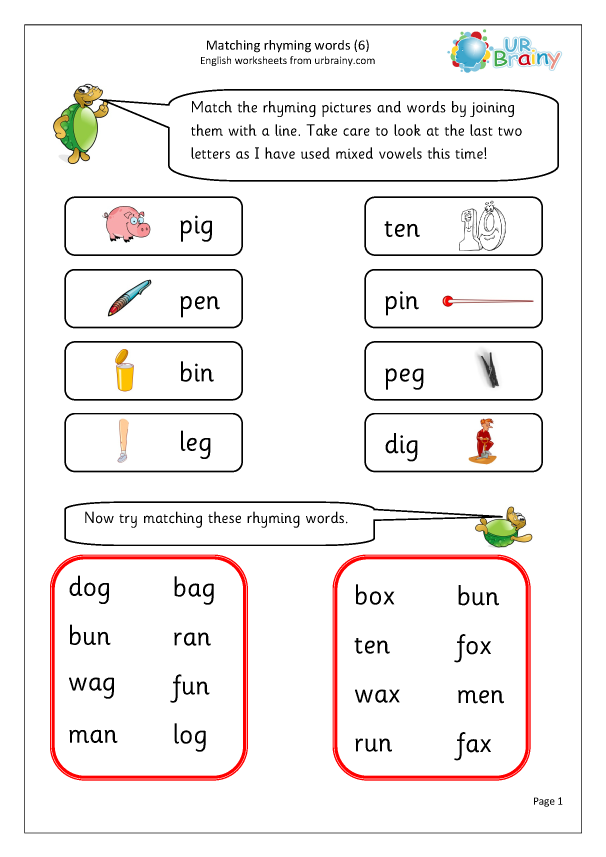 The child feels this feature, and intuitively reaches out to such works. If the child is sad, if he cries from pain or resentment, a cheerful rhyme will caress, make him laugh, dry his tears. If a child is naughty, indulges, fights - rhymed lines will stop the bully, shame the offender and the fighter.
The child feels this feature, and intuitively reaches out to such works. If the child is sad, if he cries from pain or resentment, a cheerful rhyme will caress, make him laugh, dry his tears. If a child is naughty, indulges, fights - rhymed lines will stop the bully, shame the offender and the fighter.
It is easy to see that most of the first children's books were poetry books. Yes, and kids prefer poetry. And this is not surprising: rhythm, rhyme, melodiousness, bright, concise images, expressive alliteration help the baby to concentrate, better imagine what the rhyme says.
Gradually, poetic images will open and explain to the child the life of society and nature, the world of human feelings and relationships, broaden his horizons, enrich the child's vocabulary, teach him to use figurative definitions and metaphors, help him master the grammar of his native language, master coherent speech.
Poetic genre for the development of children's speech.
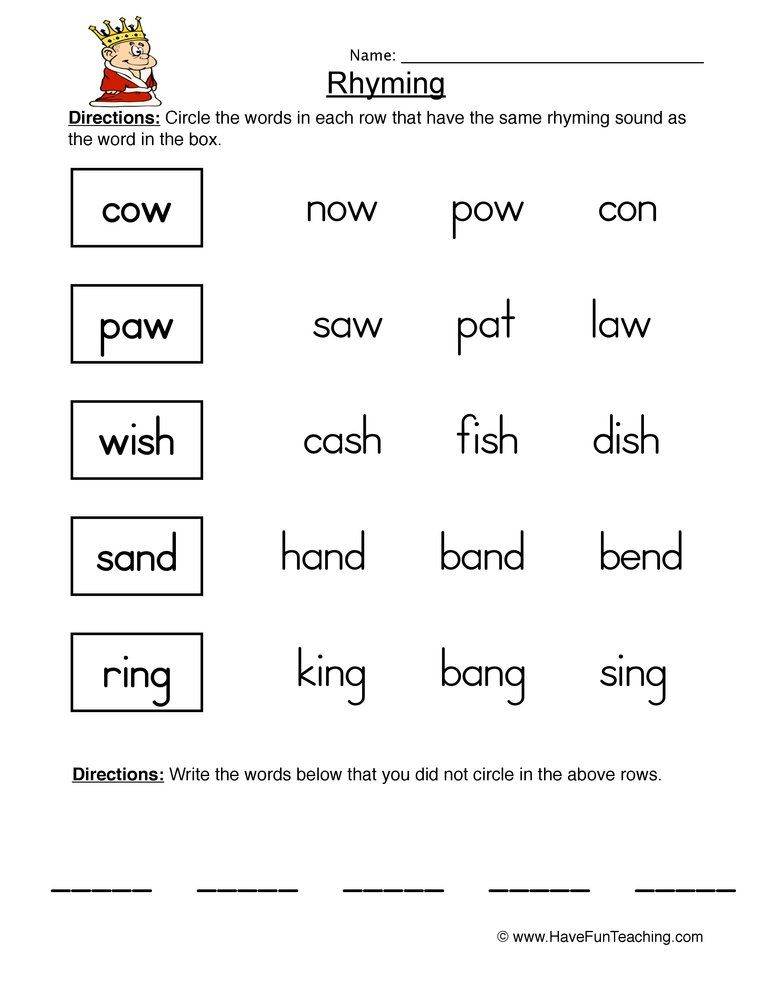 Children's folklore
Children's folklore Children's folklore is created both in the genres of adult folklore (chants, sentences, jokes, etc.), and in genres developed by the children themselves (drawing lots, rhymes, teasers, etc.).
A special place in it is occupied by "poetry of nurturing" , or "mother's poetry", associated with the upbringing of small children, with care and care for them. At the center of all "maternal poetry" is the child. He is admired, he is cherished and cherished, decorated and amused. In the very first impressions of a child, folk pedagogy lays a sense of the value of one's own personality. The baby is surrounded by a bright, almost ideal world, in which love, goodness, and universal consent reign and win.
"Poetry of nurturing" includes lullabies, pestles, nursery rhymes, jokes, fairy tales and songs created for the little ones.
Pestlets accompany the physical procedures necessary for the child. Their content is associated with certain physical actions.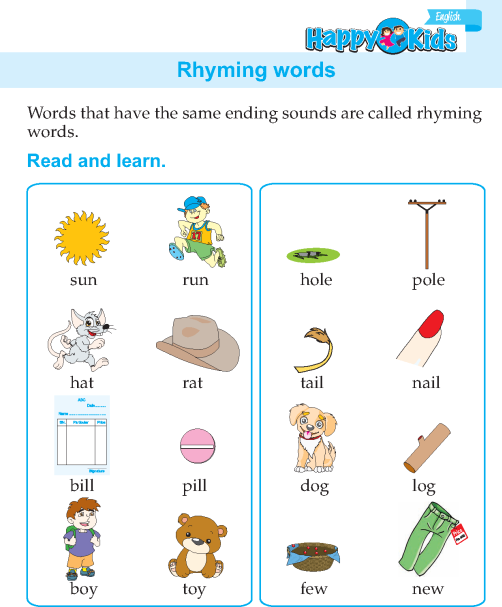
Nursery rhymes - songs accompanying the child's games with fingers, arms, legs. This is fun with a pronounced gaming action. They help the child to master speech faster, to learn the riches of the Russian language, prepare them for the perception of humor, teach them to joyfully comprehend the world around them.
Jokes are songs reminiscent of little fairy tales in verse. They are always dynamic, filled with energetic actions of the characters.
Poetic genre for the development of children's speech. Poetry memorization
Poetry memorization is a great brain training. Scientists have long proved that a child who knows a lot of poetry in early childhood and in later life demonstrates better indicators of intellectual development than peers.
It is interesting that any, even the simplest nursery rhyme, includes words that we rarely use in everyday life: these are metaphors, vivid epithets, comparisons and images. And the construction of a poem differs from the speech construction of our ordinary speech. A child who repeats these turns while memorizing a poem remembers them, enriching his own speech and vocabulary.
And the construction of a poem differs from the speech construction of our ordinary speech. A child who repeats these turns while memorizing a poem remembers them, enriching his own speech and vocabulary.
At preschool age, when memorizing poetry, it is necessary to use visual and illustrative material. You can use mnemonics. This method helps to remember the plot and not confuse the order of events in it, supporting mediated memory, significantly increases the efficiency of the memorization process, increases its productivity.
Learning and pronunciation of tongue twisters is perhaps the most interesting activity for a child. Tongue twisters are used with great success to develop different aspects of sounding speech: to overcome lethargy and inactivity of the articulatory apparatus (improve the mobility of the muscles of the tongue, lips, lower jaw), to consolidate the correct pronunciation of sounds, to develop distinct and clear speech (diction) and to activate children's vocabulary.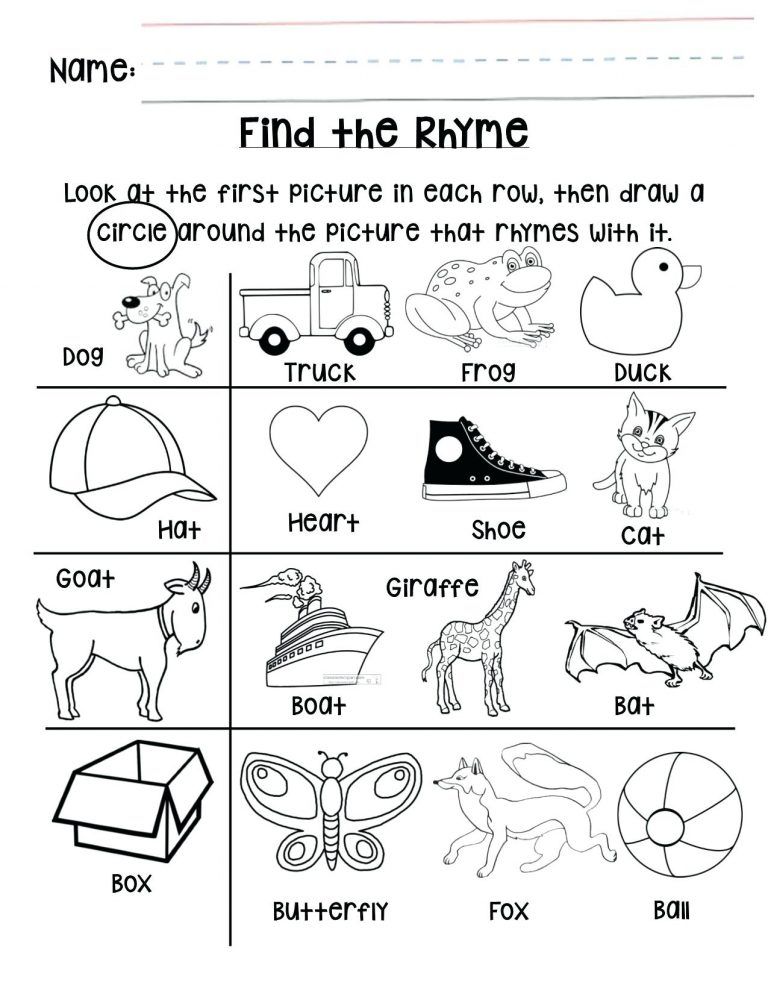
Poetic genre for the development of children's speech. Logarithmic physical. minutes
Logorhythmics is a form of active therapy in which the formation of sound pronunciation proceeds through the development of the child's motor sphere in combination with word and movement.
Under the influence of logorhythmic exercises, children undergo changes in sound pronunciation, word formation, and in the accumulation of an active vocabulary. They contribute to the development of the tempo and rhythm of speech breathing, the development of articulatory motor skills, the strengthening of facial muscles, the formation of a phonemic system, the development of tempo-rhythmic and melodic-intonation characteristics of speech, and have a beneficial effect on the formation of spatial representations.
Poetic genre for the development of children's speech. Compilation of rhymed texts
Researchers of children's speech found that children aged 3-5 have a natural need for versification (poetry).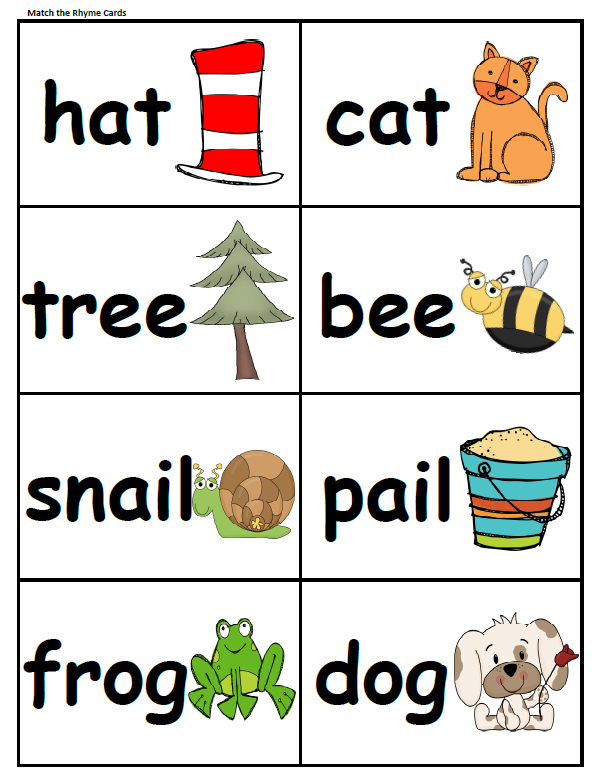
A sequence of games and exercises for teaching children how to compose rhyming texts:
- "Folding pictures" (teaching the selection of pictures depicting objects whose names rhyme).
- “Come up with a rhyming word”, “Say a word”, “Warehouse-non-warehouse” (teaching children to choose rhyming words on their own).
- "Chistogovki" (teaching children to select a rhyme for a sound combination)
- “Come up with rhyming lines” (teaching children how to compose rhyming lines for a given phrase).
- Making a limerick (introducing children to the model of making a limerick and an exercise in creating rhyming texts in the style of nonsense).
References
- Sidorchuk T.A., Khomenko N.N. Technologies for the development of coherent speech of preschoolers (a manual for teachers of preschool institutions), 2004.
Math for preschoolers - math games
868
Mothers of preschoolers often say, "My child doesn't want to learn anything.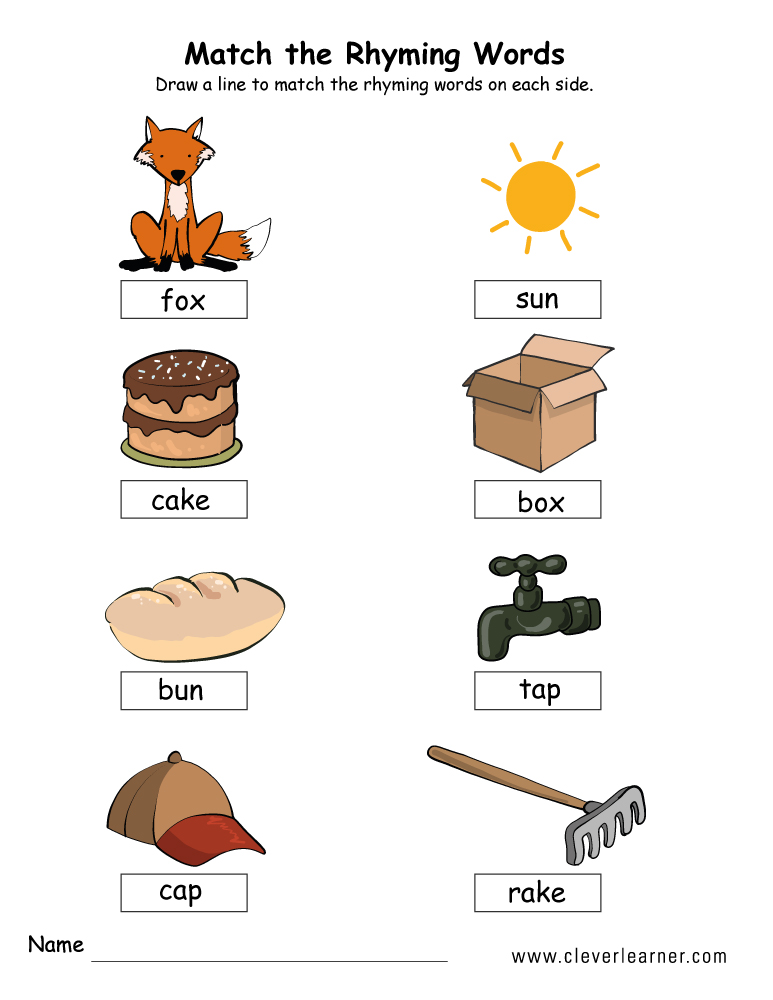 " With schoolchildren, things are a little easier, children of 7-8 years old have a more developed emotional-volitional sphere. This means that they are more independent, able to concentrate and hold attention intentionally, unlike themselves, but at the age of 5. Therefore, it is almost impossible to force a preschooler to study - you need to be interested! We offer a list of simple games and recommendations that can help parents of fidgets.
" With schoolchildren, things are a little easier, children of 7-8 years old have a more developed emotional-volitional sphere. This means that they are more independent, able to concentrate and hold attention intentionally, unlike themselves, but at the age of 5. Therefore, it is almost impossible to force a preschooler to study - you need to be interested! We offer a list of simple games and recommendations that can help parents of fidgets.
What in mathematics should a child know by the age of 5-6?
If the child is familiar with mathematics before school, it will help him to adapt to the school load more easily.
Basic things a preschooler needs to know and be able to do:
- Numbers from 0 to 9 and their corresponding numbers - you need to be able to correlate the number of objects with the number.
- Be able to count in order to 10 and back.
- Signs of addition and subtraction, as well as equals, greater than and less than.
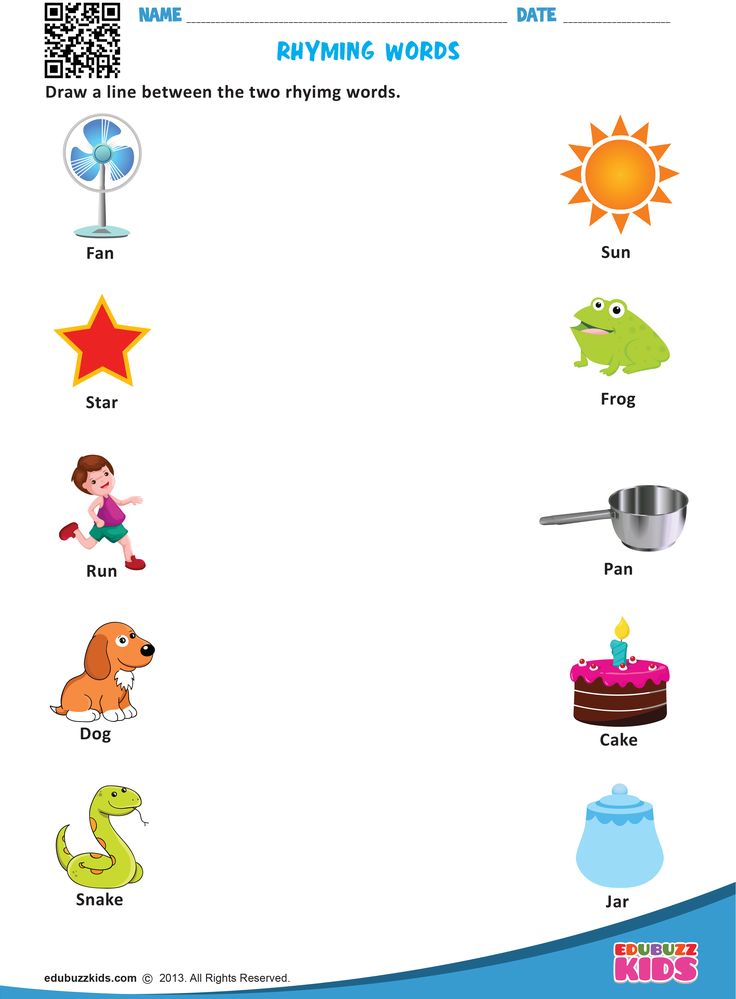
- Be able to perform addition and subtraction within 10.
- Know the basic shapes and their names: circle, square, rectangle, triangle, as well as be able to divide them into equal parts.
- Spatial terms: left, right, center, bottom, top. These skills will help your child navigate the notebook better. Graphic dictation does an excellent job of reinforcing these concepts.
Math games for preschoolers
First, you need to understand what the child already knows and can do, and where there are gaps. If the kid attends kindergarten, then, most likely, he already has an idea about numbers and geometric shapes.
Remember that classes with preschoolers should take place in a playful way - they can be combined with outdoor games, they can be included in everyday activities (anything can be counted: steps, steps, trees, etc.).
If you want to introduce a child to geometric shapes, it’s not enough just to say: “This is a triangle, remember!” It is necessary to achieve understanding, abstract vision and memorization at the subconscious level.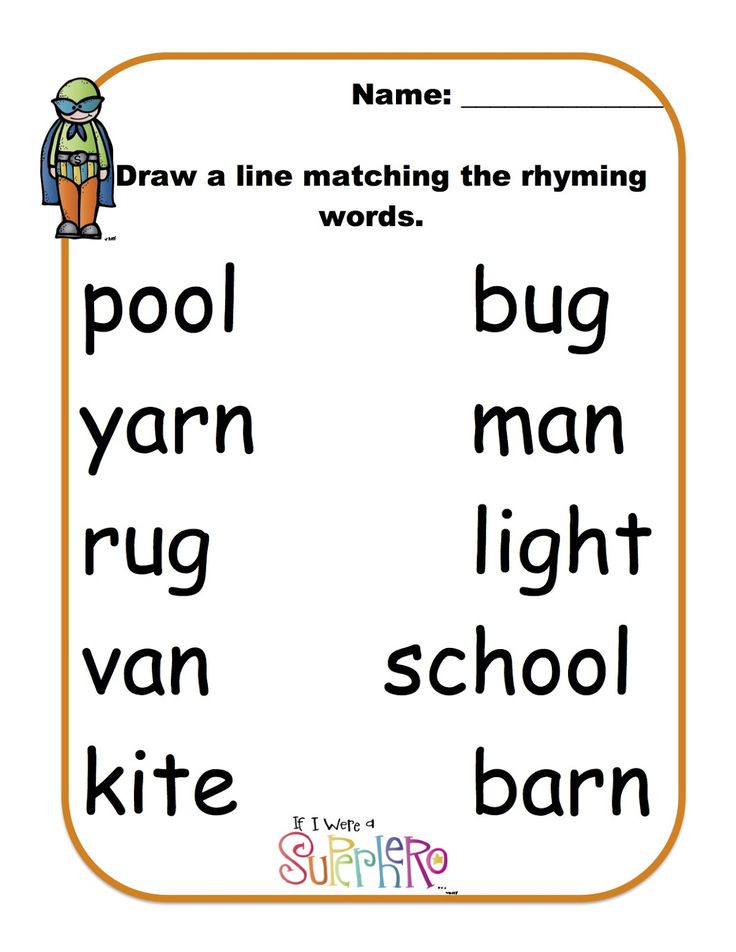
The best math activities for children 4 - 6 years old:
1. Math coloring - train counting and fine motor skills. Mathematical coloring pages include: coloring by numbers, where each fragment is assigned its own number, and a certain color is assigned to it - as a result, the baby gets a bright picture. They also include a drawing that you need to circle, connecting the numbers in order, and then color the resulting picture as you wish. This option also trains counting, fine motor skills, logical thinking.
2. Geometric riddles. You explain to the child what the figure looks like, and his task is to guess which figure you are describing. It is possible to do this in the format of rhyming riddles, or you can describe them to your child in your own words. To consolidate the result, ask the child to find an object in the room that is similar in shape to the guessed figure, and then guess his figure and describe it to you so that you can guess it.
3. "Find the missing number" - draw cards for the game: lay out the row in front of the child in order, but skip 1 card. The task of the child is to find the missing number. So we can train both counting in order and in reverse order. With the help of cards, you can introduce the child to the composition of numbers, addition and subtraction
4. Use math riddles - basically simple puzzles. For example: a cat has 4 legs, but how many legs do 2 kittens have? So the child trains counting, spatial thinking and logic. We have already written about puzzles for children, maybe you will like them!
5. Store game. Use whatever materials are available. Give the kid drawn money (you can borrow it in monopoly), stick price tags on the items and invite the kid to go shopping.
The main rules for classes: finish classes before you see signs of fatigue on the child's face; remember that it is difficult for the baby, and this is normal - do not scold him in case of failures; End classes on a positive note and celebrate your child's progress.


